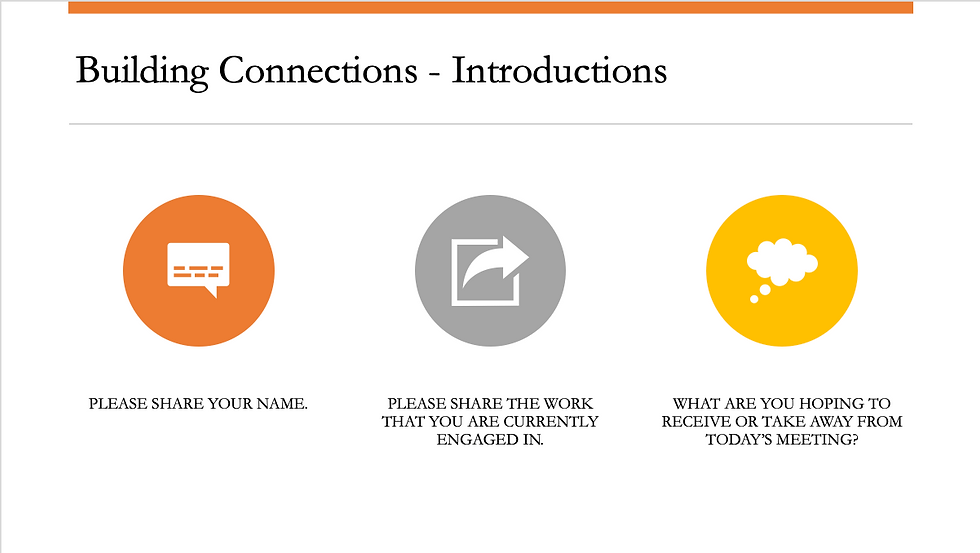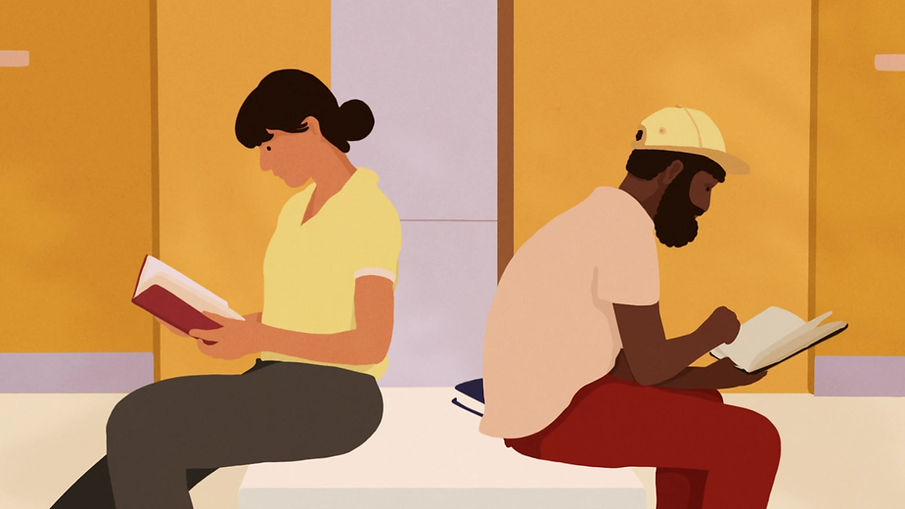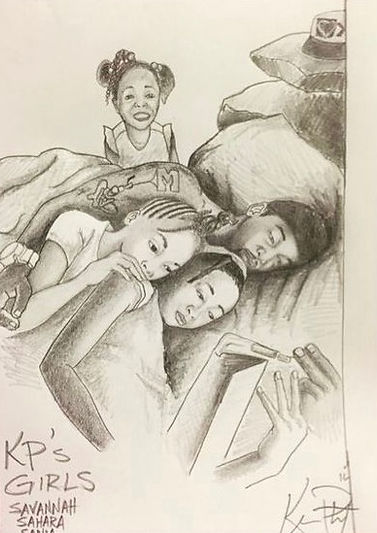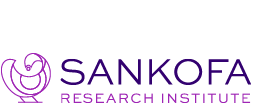
OUR MISSION
Black communities have always been involved in leading and growing the solidarity economy, building economies of cooperation, mutual aid, and care to survive and resist the violence of racial capitalism. While there is some local evidence of these practices, we have yet to see a contemporary coordinated, organized shared economic platform that strategically advances the Black community. In a collaborative effort with local coalition partners, this research is rooted in an historical and sustained effort to align the principles, the actions and the outcomes towards economic justice and self-determination for Black residents and communities.
We wholeheartedly believe in the power of Black people. Black people everywhere.
Including Black people in Pittsburgh.We know that both the history and present actions of
America have served us the short endof the stickin all areas of life, with a huge economic
loss that continues everyday. Yet we have the audacity and courage to continue to stand
up, show up and fight back. This is the self-determination rooted in our souls. Our
kujichagulia. It’s the power we have to collectively focus and choose to use our energy
towards building for us.
We possess the ability to tap into our African global legacy that offers tools upon which we can build; here within us exists values and principles rooted in the wisdom of our ancestors that demonstrate clear examples of cooperative economics that served us well before colonization and the TransAtlantic Slave Trade into the Americas.
Before and after enslavement, Black folks have always worked together to meet our common needs and throughout history, there’s consistently been folks who have minded OUR Black business. Sisters like Ella Baker and Fannie Lou Hamer, who were not only political activists, but organizers who pulled together Africana people to build co-ops that helped meet specific needs a community was struggling with.
Ujamaa Collective, in partnership with Cocoapreneur Pgh, LLC and Sankofa Research Institute, is conducting a study that, in line with M4BL (contextualize) provides a practical, collective framework for continuing to develop infrastructure that puts culturally relevant principles in practice for achieving community-led, owned, and serving institutions, cooperative businesses, shared equity projects and fair-trade business investments, and importantly equitably funded Black institutions in the Pittsburgh region. The key questions we are asking in our research is:
-
How can Africana/Black-led and serving businesses and organizations best practice solidarity around funding and financing of not only mission-based charity work, but the social, cultural and financial exchanges and models that achieve economic resilience and sustainability for Black communities?
-
What are the prerequisites for Black cooperative ownership? What do individual Black people need to have, develop or receive to make a commitment to co ownership models?
The Movement for Black Lives (M4BL) lays out policy platforms that intersect and advance culture, values and practices in all the realms that impact the quality of life for Black people of African descent in the United States. For this project, Ujamaa is focused on the platform of economic justice, founded on the M4BL statement, “We demand economic justice for all and a reconstruction of the economy to ensure Black communities have collective ownership, not merely access.” M4BL shares practices in A Vision for Black Lives: Policy Demands for Black Power, Freedom & Justice that will help achieve these outcomes, including funding critical economic Black institutions, including but not limited to cooperatives, land trusts, and culturally responsive health infrastructure.
How We Came Together
OUR GOALS
Conduct research on best practices of regional, national and international cooperative economics and present a set of evidence-based models that are culturally relevant and context-specific for organizing economic equity for Africana communities in the Pittsburgh region.
APPLICATION
Introduce the community to culturally relevant and socially-practical methods of building and developing economic self-reliance models and/or cooperative economics- any model that promotes cultural & community financial sustainability and is non-exploitative.
DISTRIBUTION
Identify an equitable infrastructure model for distributing financial support and resources that will increase collective sustainability and community ownership on a local level to Black-led organizations advocating and working towards the pillars identified in M4BL in the Greater Pittsburgh area.
RESEARCH









Watch the
Collective Courage Series


OUR PROCESS
Understanding where our community is at
COLLECTION
-
Collect information for those in practice and those wanting to learn more to be in practice now and into the future.
-
Google form questions.
-
Provide direct link in multiple spaces throughout the site.
DIALOGUE
-
Focus groups with Black/Africana sector practitioners -food, housing, education, childcare, healthcare, other commercial businesses.
CREATION
-
Interviews and surveys- understanding visions, aspirations, practices and outcomes of organizing community for economic equity; lessons learned in the field advancing economic democracy; mapping locations of cooperative activity.
SHARING
-
Sharing of secondary research via books, articles and other data sets.
“When we form organizations for economic development, we should also have therapeutic sessions and begin to restructure the personality because often what destroys organizations is not the absence of money or economic knowledge, but the absence of trust, faith and coalescence. So, our first approach is that of working on our psychology and social relations—one to the other .” -Dr. Amos Wilson Our understanding is that cognitive liberation has the power to influence behavior. Changing how and what you think can help you to better make decisions that are in your own best interest, and the interest of the people, despite prevailing circumstances. One method is this work is to host and facilitate Sankofa Circles which are affinity roundtable spaces utilizing a transformative conversational model for Africana people to explore their individual and collective relationship to and impact by, historical and current social/political events/societal systems rooted in white supremacy, and the people’s response to and despite of those events/systems. Sankofa Circles for Cooperative Economics will be and do the following for a range of Black people: -Help build consensus around important issues. -Build Community. -Provide a Courageous Healing space. In the Sankofa Circle, we intentionally incorporate breathwork, prayer, libation, or acknowledgment of the Ancestors; a space to embody yourself and be in collective communion with a greater power/energy to heal our community. We do this because we understand that our intellect alone is insufficient to bring about the change that our people need. We acknowledge that the impact of Post Traumatic Slave Syndrome is so fundamental to the condition of our people today that we need something higher than our individual selves to help us secure our freedom and healing. ~If our healing were based on our ability to think or plan our way out of our oppression – we’d be free by now.

Knowledge is
Power
ADDITIONAL
RESOURCES
Historical Examples of Black Cooperative Economics
Du Bois, A. Philip Randolph and the Ladies' Auxiliary to the Brotherhood of Sleeping Car Porters, Nannie Helen Burroughs, Fannie Lou Hamer, Ella Jo Baker, George Schuyler and the Young Negroes' Co-operative League, the Nation of Islam, and the Black Panther Party.
How the Kwanzaa Principles Relate to Cooperatives


UJAMAA COLLECTIVE
We provide a fair trade marketplace for cultural, artistic and entrepreneurial exchange through cooperative economics in the Historic Hill District and beyond.

COCOAPRENEUR
The mission of Cocoapreneur is to foster an environment of economic prosperity in order to ensure more sustainable neighborhoods for the historically African American communities and neighborhoods around Pittsburgh, PA.

Sankofa utilizes Community Based Participatory Research to engage a diverse set of individuals in creating knowledge to identify, develop and advance innovative strategies to build effective communities.
SANKOFA RESEARCH INSTITUTE
MEET THE CREATORS
GLOSSARY
Consumer: A person who purchases goods and services for personal use. Cooperative: A business that is owned, controlled, and operated by a group of users for their own benefit. Each member contributes equity capital, and shares in the control of the firm on the basis of one-member, one-vote principle (and not in proportion to his or her equity contribution). Cooperative members share in the profits or losses. Cooperative economics: a field of economics, socialist economics, co-operative studies, and political economy, which is concerned with co-operatives. -It is about shared ownership and a shared stake in the outcome and productivity of an enterprise. It’s voluntary and puts workers and community health first. -A way of seeing work and value as communal, as something we’re all in together with a vested interest in mutual success. -It is an economic model that prioritizes collaboration over competition. It’s not really socialism or communism and it’s not really capitalism. Manufacture: To make things on a large scale, especially in a factory or with machinery. Producer: Economics curriculum uses the term ‘producer’ to mean a firm or business. In the field of Fair Trade, ‘producers’ are the farmers, workers, artisans, fishermen, etc. ‘Businesses’ are the brands. Revenue: Money that is earned by a business. Also called ‘income.’ Shareholders: People who invest money in a business. They ‘own’ a portion of the business. Supply: The amount of a product that is available. Demand: The desire of consumers to purchase a product. ‘High demand’ means many people want the product. Workers: People in factory and manufacturing jobs (as opposed to managerial or executive positions) Labor Union: An organization of workers formed to protect workers' rights. Labor laws allow unions to bargain with management for higher wages and improved working conditions. Living Wage: A wage that is high enough to maintain a normal standard of living Democratic control: Democracy is a simple concept: the governance or control of an organization by its members through majority decision-making, "one member, one vote,” regardless of the amount of money a person controls. -In 1966 the following wording was approved by the Congress of the International Co-operative Alliance: "Co-operative societies are democratic organizations. Their affairs should be administered by persons elected or appointed in a manner agreed by the members and accountable to them. Members of primary societies should enjoy equal rights of voting (one member, one vote) and participation in decisions affecting their societies..." Culture: A social system of meaning and custom that is developed by a group of people to assure its adaptation and survival. These groups are distinguished by a set of unspoken rules that shape values, beliefs, habits, patterns of thinking, behaviors and styles of communication. Revolution: -Revolutions are an instrument of change and often an attempt to promote equality and combat oppression. -In the fields of history and political science, a revolution is a radical change in the established order, usually the established government and social institutions. Typically, revolutions take the form of organized movements aimed at effecting change—economic change, technological change, political change, or social change. The people who start revolutions have determined the institutions currently in place in society have failed or no longer serve their intended purpose. Solidarity economy: a global movement to build a just and sustainable economy where we prioritize people and the planet over endless profit and growth. Growing out of social movements in Latin America and the Global South, the solidarity economy provides real alternatives to capitalism, where communities govern themselves through participatory democracy, cooperative and public ownership, and a culture of solidarity and respect for the earth. Africana- Of or related to all Black people, inclusive of continental Africans and Africans (Black people) living throughout the diaspora and all parts of the world Diaspora: is “the voluntary or forcible movement of peoples from their homelands into new regions ...” There is “a common element in all forms of diaspora; these are people who live outside their natal (or imagined natal) territories and recognize that their traditional homelands are reflected deeply in the languages they speak, religions they adopt, and the cultures they produce.” SOURCE: Leong Yew, “The Culture of Diasporas in the Postcolonial Web” (quoting Ashcroft et al., Key Concepts in Post-Colonial Studies, and Cohen, Global Diasporas: An Introduction). Liberation: The creation of relationships, societies, communities, organizations, and collective spaces characterized by equity, fairness, and the implementation of systems for the allocation of goods, services, benefits, and rewards that support the full participation of each human and the promotion of their full humanness. SOURCE: Critical Liberation Theory, Barbara J. Love, Keri DeJong, and Christopher Hughbanks (UMASS, Amherst, 2007). Fair Trade: an organized social movement and market based approach to helping producers in developing countries to earn a fair amount of money for their work. It also supports sustainability of communities and the environment. It is a trading partnership, based on dialogue, transparency, and respect that seeks greater equity in international trade. It contributes to sustainable development by offering better trading conditions to, and securing the rights of, marginalized producers and workers - especially in the South. Fair Trade organizations (backed by consumers) are engaged actively in supporting producers, awareness raising and in campaigning for changes in the rules and practice of conventional international trade. Capital: Factories, equipment, and other productive resources. Competition: In the business world, the process of vying with other companies for profits. Competition is a driving force in national and global capitalism. Consumer: A person who purchases goods and services for personal use. White Supremacy: The idea (ideology) that white people and the ideas, thoughts, beliefs, and actions of white people are superior to People of Color and their ideas, thoughts, beliefs, and actions. While most people associate white supremacy with extremist groups like the Ku Klux Klan and the neo-Nazis, white supremacy is ever present in our institutional and cultural assumptions that assign value, morality, goodness, and humanity to the white group while casting people and communities of color as worthless (worth less), immoral, bad, and inhuman and “undeserving.” Drawing from critical race theory, the term “white supremacy” also refers to a political or socio-economic system where white people enjoy structural advantage and rights that other racial and ethnic groups do not, both at a collective and an individual level. SOURCE: “What Is Racism?” − Dismantling Racism Works (dRworks) web workbook. African-centered (Afrocentric, Africentric, Afrocentricity, Africentricity): Afrocentricity [African-centered] as the placing of African ideals at the center of any analysis that involves African culture and behavior. On a more personal level it provides the African American a window to view the world by becoming a transforming agent affording new attitudes, behaviors, beliefs and values. This transforming agent is the only reality for African people.-Molefi Asante (1987, 1989) [Asante.net] To be African-centered is to construct and use frames of reference, cultural filters and behaviors that are consistent with the philosophies and heritage of African cultures in order to advance the interest of people of African descent. -Lathardus Goggins II (1996) The African-centered perspective rests on the premise that it is valid to position Africa as a geographical and cultural starting base in the study of peoples of African descent (Keto 1989). The objective therefore is to view the world from the perspective of the people studied. The Afro-centric comprehensive model for the teaching and learning of knowledge about African peoples makes possible an understanding of, and appreciation for the social, institutional, cultural and intellectual patterns of African people. -Kean College Africana Studies Centering Blackness: Considering the Black experience as unique and foundational to shaping America’s economic and social policies: Centering Blackness demands that we create and design policies and practices that intentionally lift up and protect Black people. Anti-blackness doesn’t only impact Black people; it holds back and harms all Americans and necessitates collective healing. Centering Blackness allows for a completely different worldview to emerge, free from the constraints of white supremacy and patriarchy. White supremacy—which has harmed everyone, including robbing white people of their own humanity—needs anti-blackness to thrive. Centering blackness removes both the fuel and the constraints of white supremacy, allowing everyone to be free of its tyranny. Doing so acknowledges the historical root of this racial hierarchy that has intentionally placed black people at the bottom of society and gives us the opportunity to see the world through the lens of the black experience. It requires us to imagine how our rules and structures would be reorganized and envision a world where we all thrive because the bottom is removed. When we remove blackness from the bottom, everybody gets to be seen. SOURCES: “Centering Blackness,”Insight Center. Alicia Walters, Black Thought Project, interviewed by Siraad Dirshe in “What Does it Mean to ‘Center Black People’?,” The New York Times (2020). Power: Power is unequally distributed globally and in U.S. society; some individuals or groups wield greater power than others, thereby allowing them greater access and control over resources. Wealth, whiteness, citizenship, patriarchy, heterosexism, and education are a few key social mechanisms through which power operates. Although power is often conceptualized as power overother individuals or groups, other variations are power with (used in the context of building collective strength) and power within (which references an individual’s internal strength). Learning to “see” and understand relations of power is vital to organizing for progressive social change. Power may also be understood as the ability to influence others and impose one’s beliefs. All power is relational, and the different relationships either reinforce or disrupt one another. The importance of the concept of power to anti-racism is clear: racism cannot be understood without understanding that power is not only an individual relationship but a cultural one, and that power relationships are shifting constantly. Power can be used malignantly and intentionally, but need not be, and individuals within a culture may benefit from power of which they are unaware. (A) The ability to name or define. (B) The ability to decide. (C) The ability the set the rule, standard, or policy. (D) The ability to change the rule, standard, or policy to serve your needs, wants, or desires. (E) The ability to influence decision makers to make choices in favor of your cause, issue, or concern. Each of these definitions can manifest on personal, social, institutional, or structural levels: Personal Power - 1. Self-determination. 2. Power that an individual possesses or builds in their personal life and interpersonal relationships. Social Power - 1. Communal self-determination. 2. A grassroots collective organization of personal power. 3. Power that social groups possess or build among themselves to determine and shape their collective lives. Institutional Power - 1. Power to create and shape the rules, policies, and actions of an institution. 2. To have institutional power is to be a decision maker or to have great influence upon a decision maker of an institution. Structural Power - To have structural power is to create and shape the rules, policies, and actions that govern multiple and intersecting institutions or an industry. SOURCE: Intergroup Resources, “Power” (2012). Alberta Civil Liberties Research Centre, “Racism and Power” (2018) / “CARED Glossary” (2020). Our Shared Language: Social Justice Glossary, YWCA (2016). Discrimination: The unjust or prejudicial treatment of different categories of people or things, especially on the grounds of race, age, or sex. Capitalism: an economic system in which private individuals or businesses own capital goods. The production of goods and services is based on supply and demand in the general market. The purest form of capitalism is free market or laissez-faire capitalism. Here, private individuals are unrestrained. They may determine where to invest, what to produce or sell, and at which prices to exchange goods and services. The laissez-faire marketplace operates without checks or controls. Capitalism is an economic system characterized by private ownership of the means of production, especially in the industrial sector. Capitalism depends on the enforcement of private property rights, which provide incentives for investment in and productive use of productive capital. Capitalism developed historically out of previous systems of feudalism and mercantilism in Europe, and dramatically expanded industrialization and the large-scale availability of mass-market consumer goods. Racial Capitalism: -If capitalism is intended to maximize profit, its operation inherently divides workers and extracts labor from communities of color, including enslaved people, Indigenous people, and immigrants. -If you think of race as assigning meaning to whole groups of people, ideologically convincing others that some people are inferior to others, that some people are designed as beasts of burden, then what you end up getting is a system of extraction that allows for a kind of super-exploitation of Black and brown people. And racial capitalism also relies on an ideology or racial regime, and the racial regime convinces a lot of white people, who may get the crumbs of this extraction through slavery, through Jim Crow, convinces them to support or shore up a regime that seems to benefit whiteness based in white supremacy but where their own share of the spoils is actually pretty minuscule. So if you think of capitalism as racial capitalism, then the outcome is you cannot eliminate capitalism, overthrow it, without the complete destruction of white supremacy. SOURCE: Robin D.G. Kelley, “The Rebellion Against Racial Capitalism,” interviewed by Jeremy Scahill, The Intercept (2020). Empowerment (in business): Sharing power and allowing employees to have input and control over their work Equity: Fairness and impartiality towards all concerned, based on the principles of even-handed dealing. Equity implies giving as much advantage, consideration, or latitude to one party as is given to another. Gender: The learned behaviors and roles defined as male or female. Racism: Racism is different from racial prejudice, hatred, or discrimination. Racism involves one group having the power to carry out systematic discrimination through the institutional policies and practices of the society and by shaping the cultural beliefs and values that support those racist policies and practices. Racism = race prejudice + social and institutional power Racism = a system of advantage based on race Racism = a system of oppression based on race Racism = a white supremacy system SOURCE: “What Is Racism?” − Dismantling Racism Works (dRworks) web workbook. Racial Healing: To restore to health or soundness; to repair or set right; to restore to spiritual wholeness. SOURCE: Michael R. Wenger, Racial Equity Resource Guide (W.K. Kellogg Foundation, 2012). Culturally-relevant: 1.A teaching method by which teachers or facilitators seek to bring out the best in learners through support, understanding, knowledge of the learner's community as well as using the learner’s diverse culture to support their learning style. 2.Research methods that take into deep consideration the contexts of family and community life including cultural traditions, contemporary artmaking practice, and artistic expressions already employed by participants in relation to the goals of the project.

